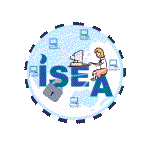A web blog is a web site that consists of a series of entries arranged in reverse chronological order, often updated on frequently with new information about particular topics. The information can be written by the site owner, gathered from other Web sites or other sources, or contributed by users. A web blog may consist of the recorded ideas of an individual (a sort of diary).
Types of blogs:
There are many different types of blogs, and they span over 100 languages. You can browse our tags to get a sense of the topics covered by, or take a look at these examples of popular blog categories.
-
Personal:
This is the broadest category and includes blogs about personal topics like politics, music, family, travel, health, you name it.
-
Business:
Professionals ranging from realtors to lawyers and stock brokers are using to share their expertise, and companies have discovered the power of blogs to personally engage with their customers.
-
Schools:
It is a great way for teachers and students to collaborate on classroom projects.
-
Non-profits:
Foundations, charities, and human rights groups find our blogs to be great tools to raise awareness and money for their causes.
-
Politics:
Political parties, government agencies, and activists using our blogs to connect with their constituencies.
-
Private:
Some people make their blogs private to share photos and information within families, companies, or schools.
-
Sports:
We’ve got teams, athletes, and fans using blogs to express and share their passion for various sports
-
Media type Blogs:
Media may be using for sharing the videos called vlogs, for sharing the links called linklogs and for sharing the photos called photoblog
-
By the device
(mobile phone, PDA, wearable wireless webcam) are used to write the blogs through the mobile device like mobile phones or PDA called moblog.
Tips
- Limit your data that you put online
- Never reveal password on questionnaires, or forums, or blogs or social networking sites
- Spammers collect e-mail addresses from websites and blogs. So, minimize posting your e-mail address.
Risks involved in blogging:
While blogging provides a humanizing effect on news and journaling, it also opens a window into personal lives. The details shared in blogs were once only available to a select group of friends, and while blogging has become common place, it has risks that should not be ignored
If you give your personal information like your name, location address, phone numbers, credit card details in the blogging sites, your information may be stolen by others (identity theft) because everyone who is having login account in the site which you are using can access to your profile. The profile which you are creating will be visible to everyone on the blog site. The persons like strangers can access your profile and can view all your details
For example, if you give your credit card number in the site, they may use that number for their own business or shopping purpose and the bill will be sent to you. Another example is if your children give their school name or location addresses in the site, the strangers who access that data may take advantage of it and may kidnap your children.
CyberStalking :
Cyber stalking is a crime in which the attacker harasses a victim using electronic communication, such as e-mail or instant messaging (IM), or messages posted to a Web site or a discussion group. Cyber stalking is a new phenomenon that allows anonymous online stalkers to prowl for victims. Online bloggers traditionally provide personal details about their lives. As a result, many women that blog are becoming victims. Most people are concerned about children on the Internet and set up rigorous posting guidelines for children, adolescents, and teenagers, but few adults heed the warnings and often do not consider that they too can be targeted.
Females, in particular, should be cautious when circumnavigating the blogosphere. If you are a blogger or contemplating an online journal, consider these tips to protecting your identity.
Do not have an online profile:
Most blogging services allow bloggers to create an online profile. While it might be fun to post information about likes and dislikes, it is best to refrain from posting any personal details. Often, personal details inadvertently provide insight into physical location or habits. The aggregate information in a personal profile can also assist someone interested in pursuing an individual.
Tips to avoid risks by blogging:
- Never give away your personal information into the blogging sites
- Put reliable information as it reaches entire world and assume what you publish on the web is permanent.
- Avoid competition with other bloggers.
- State the terms of use, copy right in blog properly to viewers to protect your blogs.
- Guide them with other positive examples such as the children are posting their related information.
- Post anonymously: Manage your blog anonymously or adopt an alias for all online posting. This will help protect you in the event that you draw unwanted attention
- Avoid personal or identifying details: Avoid any personal or identifying details when posting in your blog. Do not post in advance about locations that you will be or about areas that you live near
- No photos: Refrain from posting a picture. Photos can invite trouble or unwanted attention.
- Avoid inappropriate dialogue: Be careful not to engage in dialogue that could be interpreted in a way that it was not intended.
- Sometimes humorous threads can get out of hand. If the dialogue degrades to an area that makes you uncomfortable, disengage from the dialogue and refrain from further posting. Also when making decisions about individuals online, consider their past posting behaviour and attempt to consider their true intentions
- Always remember that just because you do not have a dialogue with someone does not mean that they are not reading everything that you write. Many people merely lurk on line and don't engage in comment posting, but do read what is written.
- Your audience could be much larger than you realize
- Timeless: Internet content is timeless, and keep in mind that even if you remove content, it might be archived or syndicated. If you do not want something read, do not post it to the Internet. High Schools, Colleges and Employers all search the Internet to discern an individual’s history. Sordid details about a late night will not help land a coveted job
- The internet is a haven for all types of predators. Always remember that just because someone says something is true, does not mean that it is. Predators adopt personas of who they think you want them to be. Just as we provide guidelines to young children, adults should be wary and take precautions when posting online as well
- While blogging can be a great outlet and channel, and in some way immortalizing thoughts, it is important that safety is considered and that good blogging practices are followed at all times.
Guidance for Parents on Blogging
- Establish Rules for online use with children.
- Monitor what your children plan to post before they post it.
- Evaluate Blogging Service and their features like a password protected secured blogs etc.
- Review your children blogs regularly
- Guide them with other positive example such as reference to the students who are posting their related information.

